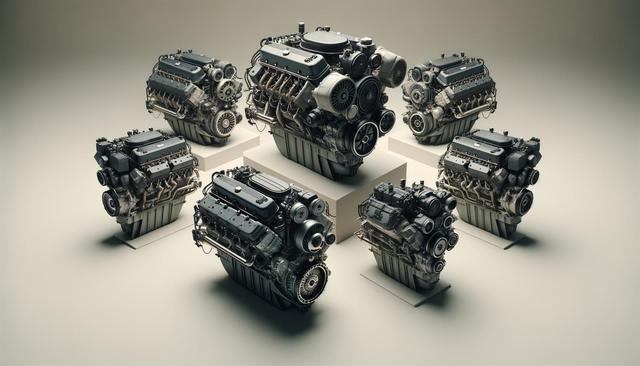Why Consider a Used Boat Engine?
Purchasing a used boat engine offers a practical solution for boat owners seeking reliability without the financial burden of buying new. Many marine engines are built to last, and with proper maintenance, a second-hand engine can deliver years of dependable service. Whether you’re restoring an older vessel, upgrading engine power, or replacing a non-functional unit, the used market offers a diverse range of options that can suit your needs and budget. One of the primary advantages is cost savings. Used engines are significantly less expensive than new ones, making them accessible to a wider range of boaters.
Moreover, the depreciation curve on engines flattens after the initial years, meaning you can often purchase a high-quality engine that has already absorbed the biggest drop in value. This makes used engines an appealing choice for both recreational users and professionals alike. Beyond cost, the used market also offers a wide array of engine types, brands, and configurations that may no longer be available new, giving you more flexibility in finding exactly what you need.
What to Look for When Buying Used
When shopping for a used boat engine, it’s essential to do your homework. Not all engines are created equal, and their condition can vary based on usage, maintenance, and storage. Start by examining the engine’s service history. A well-documented maintenance record is a positive sign, indicating that the previous owner took proper care of the unit. In addition to records, consider the following factors:
- Engine hours: Lower hours generally indicate less wear, but proper maintenance is equally important.
- Compression test results: This test can reveal the internal condition of the engine’s cylinders.
- Visual inspection: Look for signs of corrosion, oil leaks, or worn components.
- Model compatibility: Ensure the engine is suitable for your boat’s size and intended use.
It’s also advisable to have the engine inspected by a marine mechanic before purchase. A professional can provide a reliable assessment, helping you avoid potential pitfalls and hidden issues.
Where to Find Used Boat Engines for Sale
There are several places to search when looking for used boat engines. Online marketplaces are popular for their convenience and extensive listings. Marine-specific classified sites often offer engines from both private sellers and dealers, giving you a broad selection to choose from. Additionally, local boatyards and marinas frequently have used engines for sale, either from trade-ins or salvaged boats.
Some trusted sources include:
- Marine salvage yards
- Boat repair shops
- Online classifieds and auction sites
- Local boating forums and community boards
When buying online, always request detailed photos and ask questions about the engine’s history. If possible, arrange to see the engine in person or request a live video inspection. Meeting the seller and verifying the engine’s condition firsthand can help avoid scams or misunderstandings.
Benefits of Buying from a Dealer vs. Private Seller
Both private sellers and dealers offer used boat engines, each with their own advantages. Private sellers often provide lower prices, as they’re usually more flexible and not tied to business overheads. However, buying from a private party requires more diligence, as there are fewer guarantees or legal protections.
In contrast, purchasing from a dealer may offer additional benefits such as:
- Limited warranties or return policies
- Pre-sale inspection and servicing
- Financing options
- Professional advice and support
Dealers are more likely to ensure the engine is in good working order before selling, and they may also be able to assist with installation or recommend competent marine technicians. For buyers unfamiliar with engine mechanics, this added support can be invaluable and may justify the slightly higher cost.
Maintaining Your Used Boat Engine
After purchasing a used boat engine, proper maintenance is crucial to ensuring its longevity and performance. Regular upkeep not only improves reliability but also preserves its resale value. Key maintenance tasks include:
- Changing the oil and filters regularly
- Inspecting and replacing spark plugs as needed
- Flushing the engine after use in saltwater
- Checking belts, fuel lines, and hoses for wear
- Storing the engine properly during off-season
It’s a good idea to keep a maintenance log and schedule annual check-ups with a marine technician. If parts need replacing, be sure to use manufacturer-approved components to maintain the engine’s performance and avoid compatibility issues. Taking care of your engine ensures many more hours of smooth operation on the water.
Conclusion: Making a Smart Investment
Choosing to buy a used boat engine can be a wise decision for boaters looking to balance performance with cost. By understanding what to look for, where to shop, and how to maintain your engine, you can make a purchase that serves you well for years. Whether you’re a weekend cruiser or a seasoned mariner, the used engine market has plenty of reliable options worth exploring. With careful selection and ongoing care, a pre-owned engine can power your boating adventures with confidence and value.







